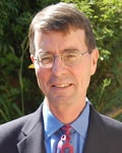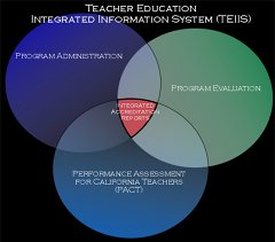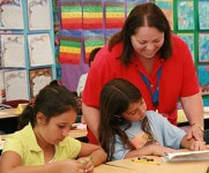Newsletter - Winter 2011
 Greg Duncan Distinguished Prof.
Greg Duncan Distinguished Prof.
Distinguished Professor Greg Duncan Delivers Presidential Address at Biennial Meeting of Society for Research in Child Development
Distinguished Professor of Education Greg Duncan, President of the Society for Research in Child Development (SRCD), will deliver the Presidential Address at the association's biennial meeting in Montreal on April 1. His address is entitled "Give Us This Day Our Daily Breadth."
SRCD is a professional association dedicated to promoting multidisciplinary research in the field of human development, fostering the exchange of information among scientists and other professionals of various disciplines, and encouraging applications of research findings. Over 5,500 researchers, practitioners, and human development professionals from more than 50 countries are members of SRCD.
Abstract:
As with any discipline, the field of child development progresses by both deepening and broadening its conceptual and empirical perspective. The rewards to refinement are impressive, but there is little need for encouragement in this area, since our disciplines, universities, and funding agencies reward depth and rarely breadth. I make the case for breadth: For combining insights from different disciplines and methods in new and synergistic ways. Examples include ways of looking at the influences of family poverty on children and methods for assessing impacts of policies. Drawing together disparate ideas about development and methods from different research traditions can be time-consuming and frustrating, but also deeply rewarding, both scientifically and personally. I close with some thoughts about how departments, universities, funding agencies and SRCD itself might promote interdisciplinary inquiry.
Distinguished Professor of Education Greg Duncan, President of the Society for Research in Child Development (SRCD), will deliver the Presidential Address at the association's biennial meeting in Montreal on April 1. His address is entitled "Give Us This Day Our Daily Breadth."
SRCD is a professional association dedicated to promoting multidisciplinary research in the field of human development, fostering the exchange of information among scientists and other professionals of various disciplines, and encouraging applications of research findings. Over 5,500 researchers, practitioners, and human development professionals from more than 50 countries are members of SRCD.
Abstract:
As with any discipline, the field of child development progresses by both deepening and broadening its conceptual and empirical perspective. The rewards to refinement are impressive, but there is little need for encouragement in this area, since our disciplines, universities, and funding agencies reward depth and rarely breadth. I make the case for breadth: For combining insights from different disciplines and methods in new and synergistic ways. Examples include ways of looking at the influences of family poverty on children and methods for assessing impacts of policies. Drawing together disparate ideas about development and methods from different research traditions can be time-consuming and frustrating, but also deeply rewarding, both scientifically and personally. I close with some thoughts about how departments, universities, funding agencies and SRCD itself might promote interdisciplinary inquiry.

Faculty and Ph.D. Students Present at SRCD Biennial Conference
Ten faculty members and ten Ph.D. in Education students are presenting at the 2011 Biennial Meeting of the Society for Research in Child Development. Faculty presenters include Rebecca Black, Liane Brouillette, Margaret Burchinal, AnneMarie Conley, Greg Duncan, Joseph Mahoney, Kim Pierce, Stephanie Reich, Lindsey Richland, and Deborah Lowe Vandell. Ph.D. student presenters include Anamarie Auger, Tran Dang, Briana Hinga, James Leak, Sabrina Kataoka, Weilin Li, Sonja Lind, Emily Penner, Teomara Rutherford, and Erik Ruzek.
In addition to the presentations, DoE Professor and Chair Deborah Lowe Vandell is chairing the Paced Presentation Symposium: Parent Social Networks, the Parent-Child Bond and Children's Social Adjustment and is serving as discussant for the Paper Symposia Child Care Quality Dosage, Thresholds, and Features and Child Outcomes: New Analyses of Data from National Studies and Contexts of Early Childhood Development: Connections between Maternal Employment and Childcare. Professor Margaret Burchinal is serving as discussant for Child Care and Child Develoment in Western Countries: Results from 3 European and North American Populations Samples. SRCD President Distinguished Professor Greg Duncan is chairing the SRCD Awards Ceremony.
Ten faculty members and ten Ph.D. in Education students are presenting at the 2011 Biennial Meeting of the Society for Research in Child Development. Faculty presenters include Rebecca Black, Liane Brouillette, Margaret Burchinal, AnneMarie Conley, Greg Duncan, Joseph Mahoney, Kim Pierce, Stephanie Reich, Lindsey Richland, and Deborah Lowe Vandell. Ph.D. student presenters include Anamarie Auger, Tran Dang, Briana Hinga, James Leak, Sabrina Kataoka, Weilin Li, Sonja Lind, Emily Penner, Teomara Rutherford, and Erik Ruzek.
In addition to the presentations, DoE Professor and Chair Deborah Lowe Vandell is chairing the Paced Presentation Symposium: Parent Social Networks, the Parent-Child Bond and Children's Social Adjustment and is serving as discussant for the Paper Symposia Child Care Quality Dosage, Thresholds, and Features and Child Outcomes: New Analyses of Data from National Studies and Contexts of Early Childhood Development: Connections between Maternal Employment and Childcare. Professor Margaret Burchinal is serving as discussant for Child Care and Child Develoment in Western Countries: Results from 3 European and North American Populations Samples. SRCD President Distinguished Professor Greg Duncan is chairing the SRCD Awards Ceremony.
 Interaction of 3 Program Modules
Program Administration,Program Evaluation, & PACT
Interaction of 3 Program Modules
Program Administration,Program Evaluation, & PACT
UC Irvine Takes Lead in Developing Integrated Teacher Education Tracking System (TEIIS)
In the new educational and political climates of program accountability and data driven decision-making, teacher education programs are expected to document the preparation of teacher candidates from the application stage through their eventual placement in a K-12 classroom.
UC Irvine has taken the lead in creating an information tracking system, Teacher Education Integrated Information System (TEIIS), that not only meets the new California data collection/reporting requirements but also simplifies program functions for students, instructors, supervisors, and administrators.
Teri Clark, Acting Director of the Professional Services Division of the California Committee on Teacher Credentialing (CTC), explains: "All education preparation programs are expected to fulfill a number of basic state expectations. From what I've seen, TEIIS might be the most comprehensive way to organize and keep track of data."
TEIIS has three modules: Program Administration, Program Evaluation, and PACT (Performance Assessment for California Teachers).
During creation of TEIIS, members of the State's Committee on Accreditation provided feedback on the system's functionality and utility and expressed their belief that TEIIS can be a model for other California teacher preparation institutions to emulate.
The system's primary designer, Peter Jones, cites an additional benefit: "The incredible flexibility in accessing data and generating reports that TEIIS offers helps control administrative program costs."
TEIIS has been adopted by two other UCs - UC Riverside and UC Santa Cruz.
In the new educational and political climates of program accountability and data driven decision-making, teacher education programs are expected to document the preparation of teacher candidates from the application stage through their eventual placement in a K-12 classroom.
UC Irvine has taken the lead in creating an information tracking system, Teacher Education Integrated Information System (TEIIS), that not only meets the new California data collection/reporting requirements but also simplifies program functions for students, instructors, supervisors, and administrators.
Teri Clark, Acting Director of the Professional Services Division of the California Committee on Teacher Credentialing (CTC), explains: "All education preparation programs are expected to fulfill a number of basic state expectations. From what I've seen, TEIIS might be the most comprehensive way to organize and keep track of data."
TEIIS has three modules: Program Administration, Program Evaluation, and PACT (Performance Assessment for California Teachers).
- The Program Administration module facilitates record management and reporting by tracking past, current, and prospective teacher candidates. Portals within the module provide individualized access for the candidates and for supervisors, mentor teachers, and public schools.
- The Program Evaluation module includes instruments to evaluate candidates, mentors, supervisors, and the teacher preparation program. All instruments and items are aligned to state standards and aligned as a group across programs.
- The PACT module enables teacher candidates to efficiently upload and review their video clips, lesson plans, and accompanying artifacts. This part of the module can then be accessed by professionals who score the teacher candidates' materials.
During creation of TEIIS, members of the State's Committee on Accreditation provided feedback on the system's functionality and utility and expressed their belief that TEIIS can be a model for other California teacher preparation institutions to emulate.
The system's primary designer, Peter Jones, cites an additional benefit: "The incredible flexibility in accessing data and generating reports that TEIIS offers helps control administrative program costs."
TEIIS has been adopted by two other UCs - UC Riverside and UC Santa Cruz.
 Instructor Jeff Johnston and PAs Prepare for Class
Kristin Cunningham, Griffin Lerman, Kevin Wynne
Instructor Jeff Johnston and PAs Prepare for Class
Kristin Cunningham, Griffin Lerman, Kevin Wynne
DoE's Peer Assistant Program Provides Enriching Experience for Peer Assistants, Students, and Instructors
When Lecturer Jeff Johnston teaches his Education 181A Class, three undergraduate Peer Assistants have already helped with course preparation and are present to assist with classroom activities. Mr. Johnston’s Peer Assistants are undergraduate students specifically selected for the position. When previously enrolled in an earlier offering of Mr. Johnston’s course, they had demonstrated high academic achievement and interest in the course content. During Mr. Johnston's two-hour classes two times a week, the PAs engage in a variety of activities that may include leading group discussions, assisting with class activities, and helping with logistics (collecting attendance data, distributing class materials, facilitating PowerPoint presentations).
Outside of class, the PAs help prepare and copy class materials, create and maintain the class message board, hold study sessions with students before midterms and finals, and communicate student needs and interests to the instructor.
The Department of Education Peer Assistant Program was introduced as a pilot program in 2008 for nine undergraduate courses taught by six different instructors. Since 2008 the program has grown exponentially as more faculty members learned about the support that Peer Assistants provide. During the 2009-2010 year, 110 undergraduates served as Peer Assistants in the Department of Education, with an average of three to four PAs per instructor.
The benefits from the PA Program are far-reaching.
The comments of one PA who plans a career in teaching are typical of the comments found in PAs' end-of-quarter reflection papers:
Peer Assistant Guidelines: 2010-2011
When Lecturer Jeff Johnston teaches his Education 181A Class, three undergraduate Peer Assistants have already helped with course preparation and are present to assist with classroom activities. Mr. Johnston’s Peer Assistants are undergraduate students specifically selected for the position. When previously enrolled in an earlier offering of Mr. Johnston’s course, they had demonstrated high academic achievement and interest in the course content. During Mr. Johnston's two-hour classes two times a week, the PAs engage in a variety of activities that may include leading group discussions, assisting with class activities, and helping with logistics (collecting attendance data, distributing class materials, facilitating PowerPoint presentations).
Outside of class, the PAs help prepare and copy class materials, create and maintain the class message board, hold study sessions with students before midterms and finals, and communicate student needs and interests to the instructor.
The Department of Education Peer Assistant Program was introduced as a pilot program in 2008 for nine undergraduate courses taught by six different instructors. Since 2008 the program has grown exponentially as more faculty members learned about the support that Peer Assistants provide. During the 2009-2010 year, 110 undergraduates served as Peer Assistants in the Department of Education, with an average of three to four PAs per instructor.
The benefits from the PA Program are far-reaching.
- Instructors receive valuable support for course planning and delivery and assistance in evaluating student comprehension, engagement, and performance.
- Students in the course benefit from effective utilization of class time and more individual attention.
- If a course has an assigned Teaching Assistant (TA), the TA benefits from the assistance with class management and is able to devote more time to individual student needs.
- The program benefits from increased student satisfaction with course delivery, increased faculty support, and the opportunity to accommodate greater student enrollment in high-demand courses.
- PAs benefit from enhanced knowledge of course content, leadership training, and course-delivery perspective. Most discover new talents and abilities.
The comments of one PA who plans a career in teaching are typical of the comments found in PAs' end-of-quarter reflection papers:
- This has been an incredible learning experience. Since my focus during class could come off the class lectures, I could instead focus on the teaching style and the presentation methods utilized by the instructor. I tried to imagine myself in the role of the professor in order to imagine what it would be like to teach and to employ different teaching strategies.
Peer Assistant Guidelines: 2010-2011

DoE Faculty and Doctoral Students Present at Society for Research in Educational Effectiveness (SREE)
The Society for Research on Educational Effectiveness (SREE) was established in 2005 to provide an organizational infrastructure that supports and promotes research focused on causal effects of education interventions, practices, programs, and policies.
In keeping with its commitment to applying procedural norms of science to the study of educational problems, the SREE sponsors activities and publishes original research focused on educational effectiveness. Research highlighted by SREE includes rigorously designed predictive studies of educational interventions and descriptive studies that model the distribution of education outcomes. Publications and activities sponsored by SREE bring into focus developments in research design, measurement, modeling and data analysis to advance education research.
Four DoE professors -- Margaret Burchinal, Greg Duncan, George Farkas, Deborah Lowe Vandell -- and four Ph.D. in Education students -- Tran Dang, James Leak, Weilin Li, and Erik Ruzek -- are presenting at the 2011 Conference for the Society for Research in Educational Effectiveness (SREE) in Washington, D.C. March 3-5.
Presentation Titles:
The Society for Research on Educational Effectiveness (SREE) was established in 2005 to provide an organizational infrastructure that supports and promotes research focused on causal effects of education interventions, practices, programs, and policies.
In keeping with its commitment to applying procedural norms of science to the study of educational problems, the SREE sponsors activities and publishes original research focused on educational effectiveness. Research highlighted by SREE includes rigorously designed predictive studies of educational interventions and descriptive studies that model the distribution of education outcomes. Publications and activities sponsored by SREE bring into focus developments in research design, measurement, modeling and data analysis to advance education research.
Four DoE professors -- Margaret Burchinal, Greg Duncan, George Farkas, Deborah Lowe Vandell -- and four Ph.D. in Education students -- Tran Dang, James Leak, Weilin Li, and Erik Ruzek -- are presenting at the 2011 Conference for the Society for Research in Educational Effectiveness (SREE) in Washington, D.C. March 3-5.
Presentation Titles:
- Do the Effects of Early Childhood Programs on Academic Outcomes Vary by Gender: A Meta-Analysis
- Does High Quality Childcare Narrow the Achievement Gap at Two Years of Age?
- Effects of Teacher Credentials, Coursework, and Certification on Student Achievement in Math and Reading in Kindergarten: An ECLS-K Study
- Pre-school Center Quality and School Readiness: Quality Main Effects and Variation by Demographic and Child Characteristics
- Timing Issues with Early Chlldhood Education Programs: How Effect Sizes Vary by Starting Age, Program Duration, and Persistence of Effects
- Which Combination of High Quality Infant-Toddler and Preschool Care Best Promotes School Readiness?
 Warschauer Family & Friends - Tokyo Halloween 2010
Warschauer Family & Friends - Tokyo Halloween 2010
Professor Mark Warschaer Enjoys First Part of Year as Visiting Scholar in Japan
Professor Mark Warschauer is spending his sabbatical year in Tokyo as a Visiting Scholar at Waseda University. He is using the year to both continue some of his US-based projects -- he just finished writing a new manuscript on digital media and learning for Teachers College Press -- and also to deepen his ties and understanding of technology and education in Japan. On the latter note, he has given talks at Open University of Japan and Kanda University of International Studies, and, later in the year, will give plenary speeches at a regional conference of the Japan Association of College English Teachers and the annual national conference of JALTCALL. He is also visiting local schools that are making interesting uses of technology and meeting with faculty at Waseda and other universities to plan research projects on both eReading and mobile language learning.
Dr. Warschauer is joined in Japan by his wife, Keiko Hirata, and their three children, a six-year-old son, Danny, and five-year-old boy/girl twins, Noah and Mika. The three are enrolled in public kindergarten in Tokyo, which has given Mark further insight into the Japanese educational system. The three had a headstart in learning Japanese before they went to Japan and, according to Dr. Warschauer, all became bilingual in just a few months.
“It’s been wonderful to see how warmly all our children were welcomed at school,” said Dr. Warschauer, who noted that it’s the first fully inclusive educational experience that Danny, who has Down syndrome, has yet had. When Danny transitions to first grade in April, he will be in a special education program, which will give the Warschauer family a first-hand look at another aspect of the Japanese educational system.
The Warschauer family will be returning to UC Irvine at the end of June.
Professor Mark Warschauer is spending his sabbatical year in Tokyo as a Visiting Scholar at Waseda University. He is using the year to both continue some of his US-based projects -- he just finished writing a new manuscript on digital media and learning for Teachers College Press -- and also to deepen his ties and understanding of technology and education in Japan. On the latter note, he has given talks at Open University of Japan and Kanda University of International Studies, and, later in the year, will give plenary speeches at a regional conference of the Japan Association of College English Teachers and the annual national conference of JALTCALL. He is also visiting local schools that are making interesting uses of technology and meeting with faculty at Waseda and other universities to plan research projects on both eReading and mobile language learning.
Dr. Warschauer is joined in Japan by his wife, Keiko Hirata, and their three children, a six-year-old son, Danny, and five-year-old boy/girl twins, Noah and Mika. The three are enrolled in public kindergarten in Tokyo, which has given Mark further insight into the Japanese educational system. The three had a headstart in learning Japanese before they went to Japan and, according to Dr. Warschauer, all became bilingual in just a few months.
“It’s been wonderful to see how warmly all our children were welcomed at school,” said Dr. Warschauer, who noted that it’s the first fully inclusive educational experience that Danny, who has Down syndrome, has yet had. When Danny transitions to first grade in April, he will be in a special education program, which will give the Warschauer family a first-hand look at another aspect of the Japanese educational system.
- It’s been a terrific year. I’ve been able to refresh my batteries, make headway on important writing projects, and launch some valuable international collaborations. We have thoroughly enjoyed living in Tokyo, which I would describe as perhaps the most livable and enjoyable mega-city in the world.
The Warschauer family will be returning to UC Irvine at the end of June.

Distinguished Professor William Tate Delivers Lecture at DoE
"Stem Attainment and Social Disparities: Beyond the Business of Parallel Play"
William Tate, Department of Education Chair and Edward Mallinckrodt Distinguished University Professor in Arts and Sciences at Washington University at St. Louis, met with faculty and students in the Department of Education on January 28 to discuss his research exploring the presence and the impacts of "Parallel Play" in our educational system.
Abstract of Lecture: STEM attainment and social disparities are part of a mutually reinforcing and interdependent process. The paradigmatic influences of academic disciplines (e.g., sociology, psychology, political science, and economics) and fields of study (e.g., mathematics education, science education, public policy, and literacy) provide important insights into domain specific components in the process. However, the intellectual fragmentation across the problem space is potentially misleading and in some cases harmful to consumers of our research—policymakers, practitioners, and other researchers. Dr. Tate's lecture focused on this challenge. Examples and models were drawn from STEM education research and development. The costs and benefits of success were highlighted.
"Stem Attainment and Social Disparities: Beyond the Business of Parallel Play"
William Tate, Department of Education Chair and Edward Mallinckrodt Distinguished University Professor in Arts and Sciences at Washington University at St. Louis, met with faculty and students in the Department of Education on January 28 to discuss his research exploring the presence and the impacts of "Parallel Play" in our educational system.
Abstract of Lecture: STEM attainment and social disparities are part of a mutually reinforcing and interdependent process. The paradigmatic influences of academic disciplines (e.g., sociology, psychology, political science, and economics) and fields of study (e.g., mathematics education, science education, public policy, and literacy) provide important insights into domain specific components in the process. However, the intellectual fragmentation across the problem space is potentially misleading and in some cases harmful to consumers of our research—policymakers, practitioners, and other researchers. Dr. Tate's lecture focused on this challenge. Examples and models were drawn from STEM education research and development. The costs and benefits of success were highlighted.









